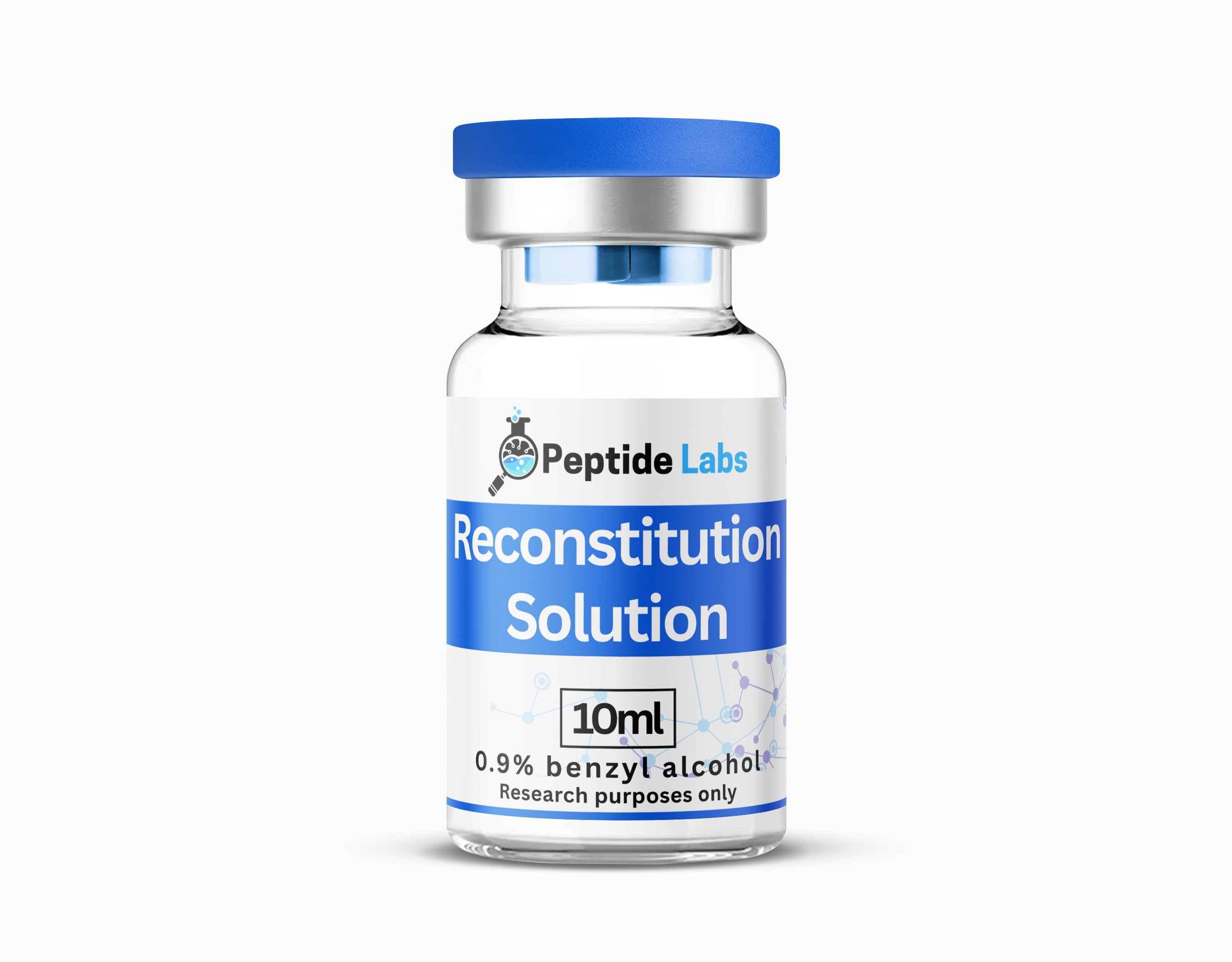
Bacteriostatic Water
Reconstitution
$12.99$6.97
Description
Bacteriostatic water
Bacteriostatic Water – 3ml/10 ml Sterile Multi-Dose Vial – For Laboratory Use Only
Bacteriostatic Water is sterile, non-pyrogenic water containing 0.9% benzyl alcohol as a bacteriostatic preservative. It is designed for dilution or reconstitution of research peptides, lyophilized powders, and laboratory compounds under aseptic conditions.
The addition of benzyl alcohol inhibits bacterial growth, allowing for multiple withdrawals from the same vial when handled properly in a sterile environment.
Product Details:
Compound: Sterile Water with 0.9% Benzyl Alcohol
Concentration: 0.9% Benzyl Alcohol (preservative)
Volume: 10ml multi-dose vial
Form: Sterile injectable-grade water
Storage: Store at 68–77°F (20–25°C); avoid contamination during use
Grade: For laboratory research and preparation use only. Not for injection in humans or animals.
Intended Use:
Reconstitution of lyophilized research peptides
Laboratory dilutions requiring bacteriostatic conditions
Multi-use sterile laboratory applications
Storage & Stability Instructions
All Peptide Labs products are manufactured using a lyophilization (freeze-drying) process to ensure maximum stability and purity. This method allows peptides to remain 100% stable for up to 3–4 months during shipping and storage at room temperature.
Once reconstituted (mixed with bacteriostatic water), peptides must be stored in the refrigerator to maintain potency and freshness. After reconstitution, peptides remain stable for up to 30 days when properly refrigerated.
What is Lyophilization?
Lyophilization is a specialized dehydration technique where peptides are frozen and exposed to low pressure, causing water to sublimate directly from solid to vapor. This process leaves behind a stable, crystalline white powder that preserves the integrity of the peptide until it’s mixed with bacteriostatic water.
Short-Term Storage:
Store at room temperature if used within a few weeks.
Keep peptides cool, dry, and protected from light.
For short-term storage (days to weeks), refrigeration at under 4 °C (39 °F) is recommended.
Long-Term Storage:
For longer preservation (several months to years), store peptides in a freezer at −80 °C (−112 °F). This ensures maximum stability and prevents degradation over time. (DO NOT RECONSTITUTE)
